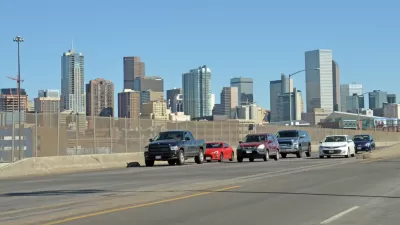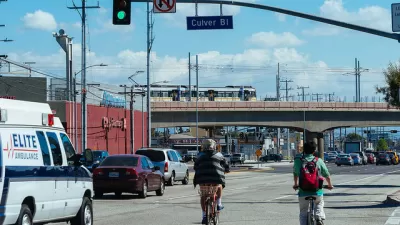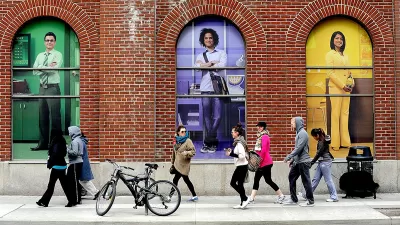The motivations to walk or bike vary greatly by income levels, according to a new study from researchers at the University of Washington. The wealthy, as it turns out, are the outliers.
Jennifer Langston reports: "Lower- and middle-income King County residents who live in denser neighborhoods — with stores, libraries and other destinations within easy reach — are more likely to walk or bike, according to new University of Washington research."
The flip side of the report is that higher-income residents offered the same resources made the choice to use their cars anyway. "Of the environmental factors they studied, the only one that significantly influenced how frequently that group walked or biked was how attractive they found their neighborhoods to be," adds Langston.
Langston provides more detail about the study's methodology as well as more details about the findings. The study will be shared in detail at the Transportation Research Board Annual Meeting, next week.
Hat tip to H. Pike Oliver for sharing the news of the study.
FULL STORY: What motivates people to walk and bike? It varies by income

Maui's Vacation Rental Debate Turns Ugly
Verbal attacks, misinformation campaigns and fistfights plague a high-stakes debate to convert thousands of vacation rentals into long-term housing.

Planetizen Federal Action Tracker
A weekly monitor of how Trump’s orders and actions are impacting planners and planning in America.

San Francisco Suspends Traffic Calming Amidst Record Deaths
Citing “a challenging fiscal landscape,” the city will cease the program on the heels of 42 traffic deaths, including 24 pedestrians.

Adaptive Reuse Will Create Housing in a Suburban Texas Strip Mall
A developer is reimagining a strip mall property as a mixed-use complex with housing and retail.

Study: Anti-Homelessness Laws Don’t Work
Research shows that punitive measures that criminalized unhoused people don’t help reduce homelessness.

In U.S., Urban Gondolas Face Uphill Battle
Cities in Latin America and Europe have embraced aerial transitways — AKA gondolas — as sustainable, convenient urban transport, especially in tricky geographies. American cities have yet to catch up.
Urban Design for Planners 1: Software Tools
This six-course series explores essential urban design concepts using open source software and equips planners with the tools they need to participate fully in the urban design process.
Planning for Universal Design
Learn the tools for implementing Universal Design in planning regulations.
Heyer Gruel & Associates PA
JM Goldson LLC
Custer County Colorado
City of Camden Redevelopment Agency
City of Astoria
Transportation Research & Education Center (TREC) at Portland State University
Jefferson Parish Government
Camden Redevelopment Agency
City of Claremont





























